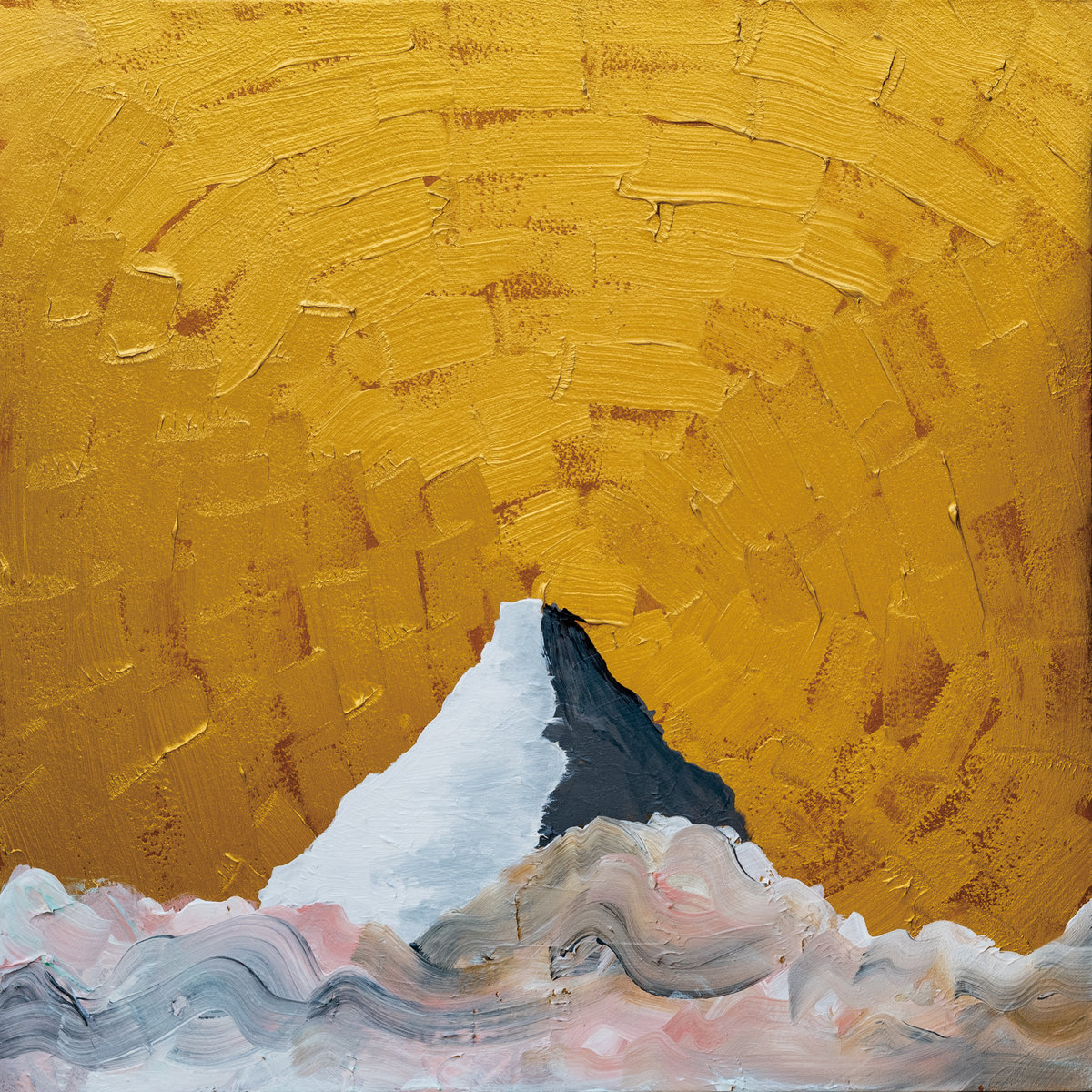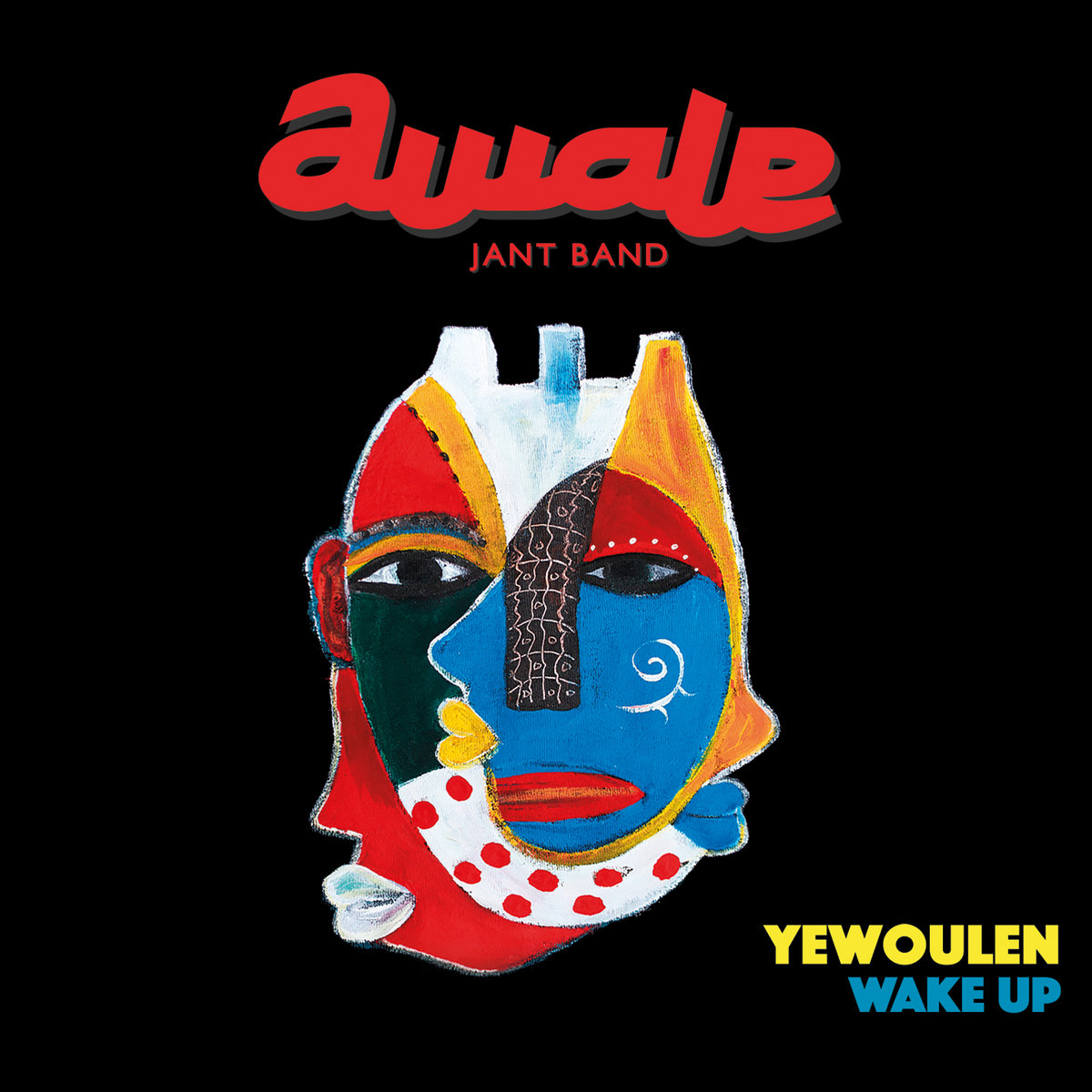Across The Atlantic #1
Introducing Across The Atlantic, Zach's latest column recommending albums new and old from around the globe. In this addition, you'll find everything from Japanese afro-funk and Latin psychedelia to Greek entechno and French jazz.
For the past few weeks, I’ve been listening to an especially wide variety of “world” music, in part to spice up my normal listening schedule, as well as to transcend from my quarantine mindset into a realm of higher consciousness. Needless to say, I’ve gone down the rabbit hole and ventured across all corners of the globe to satiate my musical desires. Some of my exploration involved discovering albums that are brand spankin’ new, while others are older, collaborative efforts that nonetheless deserve your attention for their excellence. So before I ramble on for too long, let’s sail across the Atlantic to discover what’s in store for this musical volume.
New Releases

Basta de Música - Martín Buscaglia
Let’s begin with my favorite Latin album of the year thus far. As Spanish has become more integral to my daily life, I’ve grown accustomed to listening to Spanish language music, albeit typically in the indie rock vein. Such examples include El Palacio de Linares’ Largos Agotadores, a twee and power pop record from last year, and Cala Vento’s Balanceo, featuring “Gente como tú,” a song that should be required on all summer playlists. And while the ninth album from Uruguayan singer-songwriter Martín Buscaglia may have a song or two in this style, the diversity across its brief runtime is staggering, technicolored, and stewed to perfection.
I first was introduced to this record through it’s crunchy, samba-spiced single “Me Enamoré,” and instantly fell in love with its Brazilian fusion vibes (fitting, considering that "I Fell In Love" is the title in English). With its wide instrumental palette, sultry background vocals and dusty production, it set my expectations sky high. Amazingly, Basta de Musica (“Enough Music”) delivers on every single one. Not only is this record dizzyingly diverse, it's variety reminds me of Midnight Vultures-era Beck. There’s Spanish folk meets Casio drum loops on “Para Vencer,” a frenetic electro-dance bop in “Chuza,” and a comical looped interlude in “Mírennos Bailar” that reminds me of a Homestar incidental piece.
It appears as though Buscaglia’s diversity is one of his greatest attributes, having been proven over the course of his career (this, according to a review from Mondo Sonoro). If anything, Basta de Música is a phenomenal introduction to an eclectic, multifaceted artist that knows how to arrange, compose and produce.

Alo - Ajate
Afrobeat and afrofunk are two of my favorite genres of music; if you need proof, check out my #1 album of the 2010s Rocket Juice & The Moon, featuring the late, great Tony Allen on drums. But other than last year’s self-titled album from Kokoroko, and Theon Cross’s afro-jazz tuba excursion Fyah, there haven’t been many albums of note in these genres as of late for my liking. But I’m happy to report that Tokyo-based Ajate’s Alo is not only a highlight in these genres, it is one of the most novel and successful fusions of sound you’ll hear all year(s).
Combining afrofunk with the traditional Japanese festival music ohayashi, the resulting grooves are thick and hypnotic, complimented by fluttering melodies and deliciously picked guitars. The vocals, rampant with spirit, often ascend in atypical scales, making the mystical atmosphere conjured by the band feel appropriately experimental. The record is texturally brilliant, thanks in large part to the bamboo percussion providing hollow timbre and a satisfyingly brittle feel. Whether it’s a barnburner like “Uka” or a slow simmer like “De De,” the funk Ajate masters has got that spunk.

Yewoulen - Awale Jant Band
Self-described as “Senegalese Soul,” the Awale Jant Band are a London-based afrobeat and funk group spearheaded by Biram Seck, an emotive vocalist who sings in Wolof (Senegal’s lingua franca), French and English. The band itself is composed of various players in the currently booming London jazz scene, and the level of talent amongst the group can be heard from the opening notes and pulse of “Sope.” In fact, the polyrhythms on this album might just be narcotic, as the interplay between the jagged percussion and gallivanting horns makes the listener instantly addicted.
What’s perhaps most impressive about Yewoulen (Wolof for “Wake Up”) is how concise the grooves are; the band opts for tight performance and brief, textured jams instead of expansive odysseys. As a result, tracks like “Domi adama,” running at just under seven minutes, packs as many thrills as three-minute “Just Be Free,” providing satisfaction with a consistent pulse rather than unnecessary motifs. While this album is a more traditional approach to its genres, the Latin touches and synth accents that bubble just underneath the surface add enough kick to round out each track’s dynamic range. If you have an interest in Latin jazz fused with funky, intricate rhythms and West African horns, this is the album for you.
絶対大丈夫 - 横沢俊一郎
Absolutely OK - Yokosawa ShunichiroAnother act hailing from Tokyo, singer-songwriter Yokosawa Shunichiro’s new album, anglicized as Absolutely OK, is a prime example of the emerging and prosperous DIY scene happening in Japan and East Asia at large. Yokosawa, much like soft rock band mitsume, has an appreciation for mixing light psychedelia with mischievous melodies, finding the sweet spot between shoegaze’s haze, dream pop’s ethereality, and 60's pop worship. Western acts like Old Man Canyon or Mac Demarco feel like obvious inspiration points, but dig a little deeper and you may find some Fountains of Wayne, or even Ben Folds Five.
It would also be appropriate to liken Yokosawa to Shintaro Sakamoto, for while not as diverse in instrumental palette, they both make the most out of playfully sparse arrangements and trusting their vocal abilities. A record to check out for any fans of sunkissed indie pop. Highlights include “誰にもわからない” (#1, No One Knows), “君のほっぺ” (#5, Your Cheeks), “期待してるぜベイビー” (#8, I’m Counting On Baby), and “プロローグ” (#11, Prologue).
:format(jpeg):mode_rgb():quality(90)/discogs-images/R-14807098-1583177019-9281.jpeg.jpg)

Chance & Varech (1977) - Henri Texier
Let’s get back into the jazz realm, where we have two records from French double-bassist, Henri Texier - a man who I coincidentally share a birthday with! Over his half-century career, Texier - a pioneer in the French jazz movement - has garnered acclaim for his playing style that blurs the line between hard bop and free jazz, creating soundscapes that are wholly unique in regards to the American mode of playing and composition.
Typically, his tone embodies rolling thunder, escalating tension in the depth of sound he physically and spiritually summons from his instrument. To get a feel for exactly what I mean, I recommend his 1977 album Varech (French for "Kelp," which is kind of perfect in representing). Opening with “Les ‘Lá-bas’,” Texier immediately plunges into percussive rhythm, washing the listener over with plucked acoustic strings that frolic over the deep rumble of his gargantuan strums. “Quand le blues s’en ira” is the definition of tension building, and reminds me heavily of the British experimental jazz group Polar Bear - I wouldn’t be surprised to find them to consider Texier’s work influential.
Texier’s vocal affectations also prove to be a beneficial ingredient, making the music nearly feel elven. It’s worthy to note that Texier employs the “one man band” approach on Varech, assembling the songs via multi-tracking with the use of a Revox tape recorder (this, according to Florent Servia of QwestTV). What’s even more insane is how serenely produced and encapsulating this record’s sound is; the audio quality has aged exceptionally well, feeling contemporary even in today’s landscape.
Chance, released this past February, may not be solely performed by Texier, but the players it features - woodwind player and son Sébastian, saxophonist Vincent Lê Quang, drummer Gautier Garrigue, and guitars Manu Codija - capture an undeniable chemistry rooted in appreciation for meditative, atmospheric soundscapes. My favorite player on the record is Codija, whose guitar work ventures into post-rock territory, especially on “Laniakea,” a composition written by Garrigue that also features his wistful percussion. Ultimately, both these albums are rewarding jazz records to delve into, showing both consistency and range in Texier’s playing over the years.
Old Finds

Βραχνός Προφήτης - Θανάσης Παπακωνσταντίνου
Vrachnos Profitis (Hoarse Prophet) - Thanasis Papakonstantinou
For these next batch of albums, I need to thank the wonderful DJs of Vassar College’s 91.3 WVKR in Poughkeepsie, New York. While living there, WVKR was my station of choice, thanks to the RANGE of music and programming blocks they feature; one day I would be listening to film scores and 1950s radio plays, the other would be spent exclusively listening to a Philadelphia DIY showcase. You can check out their radio shows online, and hopefully, you have the chance to be exposed to phenomenal music from around the globe, just like I was with these releases.
Thanasis Papakonstantinou (perhaps the Greekest name in the history of Greece) is a singer-songwriter in the entechno style, folk music with sparse instrumentation and densely poetic lyrics and vocals. This record, titled Vrachnos Profitis (Greek for “Hoarse Prophet”), was released in 2000 in collaboration with Trypes (“The Holes”), the most popular rock band in/from Greece at the time. The resulting product is a wildly enticing fusion of rock and Thessalian folk, a style which can be equated to Appalachian folk in America.
Many of the vibes I get from this record remind me of Mermaid Avenue by Billy Bragg & Wilco. Whereas Mermaid Avenue repurposed the unreleased songs of Woody Guthrie through Bragg’s common-man vocals and Wilco’s jammin’ Americana, Vrachnos Profitis seems to expertly render the folk music of Greece through a modern rock lens with deft experimentation and instrumental prowess. Both albums seem to accomplish the same goal, although I’m compelled to compare Papakonstantinou to Leonard Cohen and Trypes to OK Computer-era Radiohead. Needless to say: listen to this record! Start with “Palia Pligi" (Old Wound), the crown jewel of the collection.

Congotronics - Konono №1
Hailing from Kinshasa, Democratic Republic of the Congo, I guarantee you have never heard anything quite like Konono №1. I was first exposed to the group through a feature they had on Mbongwana Star’s From Kinshasa, one of the best records of the 2010s. Recently, I dove back into their catalogue, becoming entranced by their playing and amplification of the electric likembé, a traditional thumb piano found in sub-Saharan African.
Their debut record Congotronics from 2004 is the best entry point into this band’s catalogue, a rhythmic feast of otherworldly melodies and ingenuity. The band uses a DIY approach to sound assembly, distorting the timbre and textures of the likembé through self-made amps composed of found metallic items. As energetic and full of life as the music is, it’s the added bonus of electronic innovation that makes the group all the more compelling and necessary to listen to. Highlights include “Paradiso,” “Kule Kule” and “Mama Liza.”

Gumba Fire: Bubblegum Soul & Sythn-Boogie in 1980s South Africa
What better way to conclude this column’s first edition than with a stunning compilation from the incredible Soundway Records? Gumba Fire is the perfect collection of songs to break in the summertime, the portrait of a fruitful musical scene within South Africa during the 1980s. Bubblegum, the featured genre of this compilation, is essentially South Africa’s take on post-disco and synth-funk, with a noticeably lo-fi approach. The songs tend to focus on instrumental simplicity while using a vibrant color palette, producing bops that are as much earworms as they are dance bangers. If you’re a fan of 80s R&B and dance already, then it’s essential that you work songs like Ntombi Ndaba’s “Do You Trust Amajita?” or Zasha’s “Arrow Dub” into your playlists ASAP.




